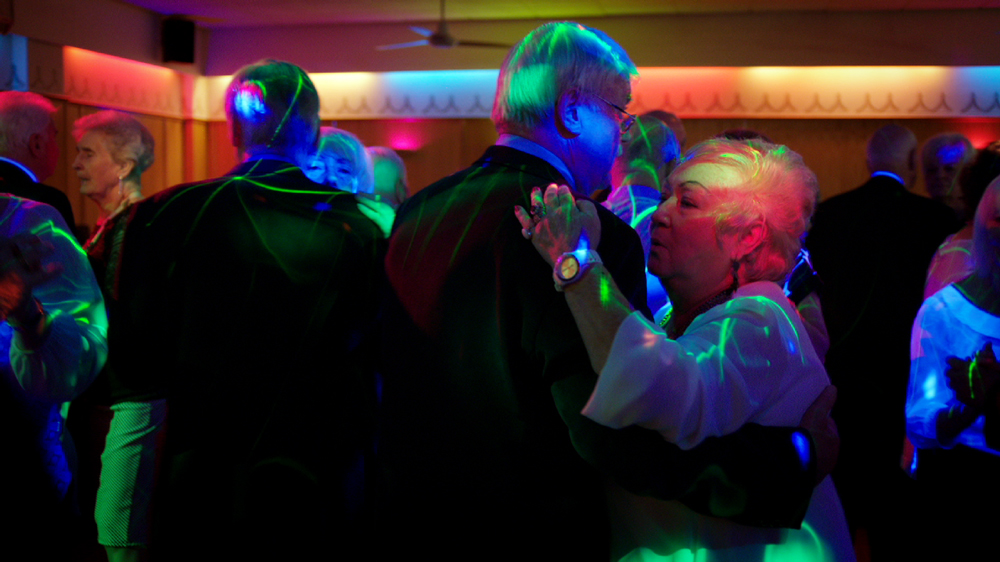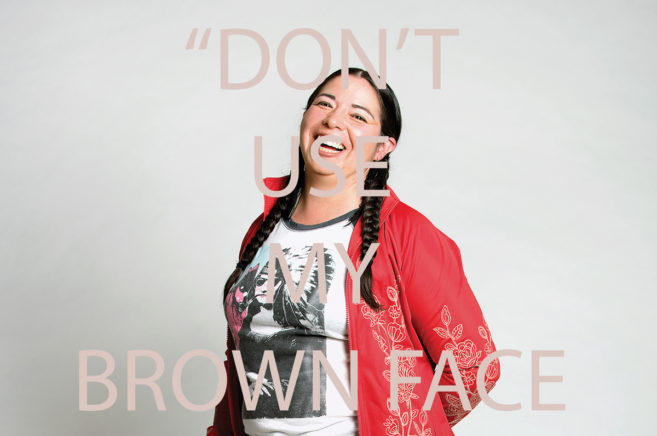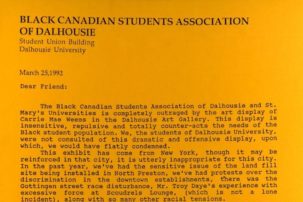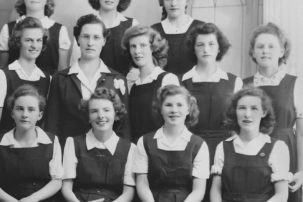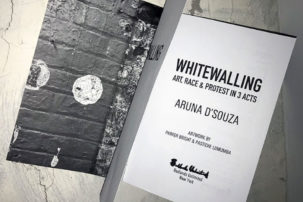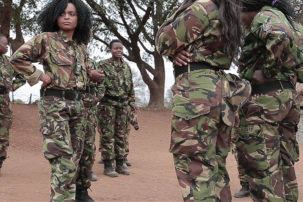The 28th edition of Toronto’s Images Festival begins this week with experimental film, video and moving-image work opening across the city. With projects by more than 130 artists and collectives at almost 25 venues, the Images Festival offers a wealth of material, but can be a little overwhelming to navigate. Here, we select seven projects we recommend attending.
Samuel Beckett, Chris Curreri and Luis Jacob’s “Phantom Limbs,” at Scrap Metal Gallery until April 25
This year the Images Festival is hosting some of my favourite things, and I couldn’t be more excited. At Scrap Metal Gallery, “Phantom Limbs” brings together film and video works by local artists Luis Jacob and Chris Curreri—real-life partners, but also topical allies in their respective interests in the aestheticized body and, conversely, aesthetic embodiment (and/or disembodiment). Bottoms by Curreri and Without Persons by Jacob are matched with a film of playwright Samuel Beckett’s Not I, performed of course by the late Billie Whitelaw, one of Beckett’s chief collaborators. If you have never seen Not I, be prepared—it is intensely moving and destabilizing, and will become tattooed on your brain. —David Balzer, associate editor
Rashaad Newsome’s “Silence Please, the Show is About to Begin,” at the Art Gallery of York University until June 14
New Orleans–born and New York–based Rashaad Newsome was one of the breakout stars of the 2010 Whitney Biennial, and his work comes to the AGYU in a survey curated by Suzanne Carte. Newsome explores the widespread pop-cultural appropriation of African American vernacular culture, some of it queer, underlining its origins while at the same time using it as a tool of counter-appropriation. Newsome has famously conducted a chorus of black women throwing shade, and has also made heraldic work from collaged bling iconography. —David Balzer, associate editor
Phil Collins’s Tomorrow Is Always Too Long at Royal Cinema on April 9 at 7 p.m.
“I like passion…Glasgow is a landscape of passions,” said critically acclaimed British artist Phil Collins when speaking about his feature film Tomorrow Is Always Too Long, which headlines this year’s Images Festival. Commissioned by Glasgow arts organization the Common Guild for the 2014 Commonwealth Games, the film takes a part animated, part channel-surfing trip through the city—from maternity hospitals to senior-citizen social clubs to the notorious Barlinnie Prison—all guided by the impassioned voices and songs of everyday Glaswegians. As one of Collins’s many collaborators on the project put it, the film is a “collage of materials, genres, questions and moods.” A soundtrack scored by Mogwai’s Barry Burns and featuring Welsh “pop-enigma” Cate Le Bon and the Royal Scottish National Orchestra promises to add extra emotive drive to Collins’s framing of the ebb and flow of Glasgow’s urban matrix. It’s an ode to the city, but also an evocative portrait of contemporary existence no matter what place you call home. —Bryne McLaughlin, managing editor
Jess Dobkin’s How Many Performance Artists Does it Take to Change a Light Bulb (For Martha Wilson) at Enoch Turner Schoolhouse on April 16 at 7 p.m.
In a 2005 video work, influential American performance artist Martha Wilson joked: “Q: How many performance artists does it take to change a light bulb? A: I don’t know. I left after four hours.” Now, 10 years later, Toronto-based Jess Dobkin’s performance work in response to Wilson updates the punchline to, “A: One to change the light bulb and 40 to document it.” Dobkin’s rendition will feature a fanfare of 40 volunteers who will document her performance in a panoply of forms, from video to photography to writing. Its commentary on the infectious zeal of documenting and sharing is au courant, joining bustling conversations around the circulation of art images in the era of smartphones and social media. The 40 volunteers won’t be the only ones doing the documenting, and it will be interesting to see how smartphone-toting audiences will reiterate the performance and shape its second life on social media. Also watch out for a special guest appearance by Martha Wilson herself—even if it means biding the entire four long hours of the event. —Amy Luo, online editorial intern
Corinna Schnitt’s Ball Spielen (Playing Ball) at Vtape, from April 10 to May 15
The Michigan Building has become a synecdoche for the economic devastation felt by Detroit. The Renaissance Revival structure, ornately covered in frescoes, has fallen into disrepair, and now only serves as a parking lot (the irony of which is difficult to ignore). Corinna Schnitt filmed Ball Spielen (Playing Ball) in the building, focusing on two protagonists, dressed in business attire, playing pickup basketball. It promises a thankfully non-didactic approach to the unequal ramifications of economic booms and busts.—Caoimhe Morgan-Feir, interim online editor
Canadian Artist Spotlight on Iris Ng at Jackman Hall on April 11 at 7:30 p.m.
When it comes to film, the director as auteur tends to monopolize our attention. This refreshing program shifts the spotlight onto the image-maker behind the lens, with a selection of films shot by Canadian cinematographer Iris Ng. Featuring music-video, documentary and experimental-film projects created in collaboration with the likes of Sarah Polley, Oliver Husain and Jean-Paul Kelly, the program will give audiences a taste of Ng’s versatility. With a poetic sensitivity to light and texture, Ng switches adeptly between 16-mm, Super 8 and digital formats to create the right image, whether it’s a high-definition establishing shot or a hazy recollection. Her output makes a case for the cinematographer as both technician and artist. This program also features one of her personal projects, Point of Departure, and those hungry for more can catch her work in two other Images Festival programs, “The Influence of Anxiety” at Jackman Hall and “Phantom Limbs” at Scrap Metal Gallery. —Amy Luo, online editorial intern
Barbara Loden’s Wanda at Jackman Hall on April 11 at 5 p.m.
I first saw Wanda by Barbara Loden in a small Paris cinema many years ago, having no idea what it was. It changed my life. Loden was married to director Elia Kazan and is mostly known (if at all) through him: one of the Actor’s Studio acolytes, with a scene-stealing turn in Kazan’s Splendor in the Grass. Bur she also wrote, directed and starred in this little-seen 1970 independent film, a devastating work about an aimless divorcee in Pennsylvania’s coal region on the bleakest of benders. Fearless, poignant and unrelenting, Wanda was made years before Cassavetes’s best work, and has been championed by the likes of Rachel Kushner and Isabelle Huppert, who was basically responsible for its recent unearthing. Don’t miss it. —David Balzer, associate editor

